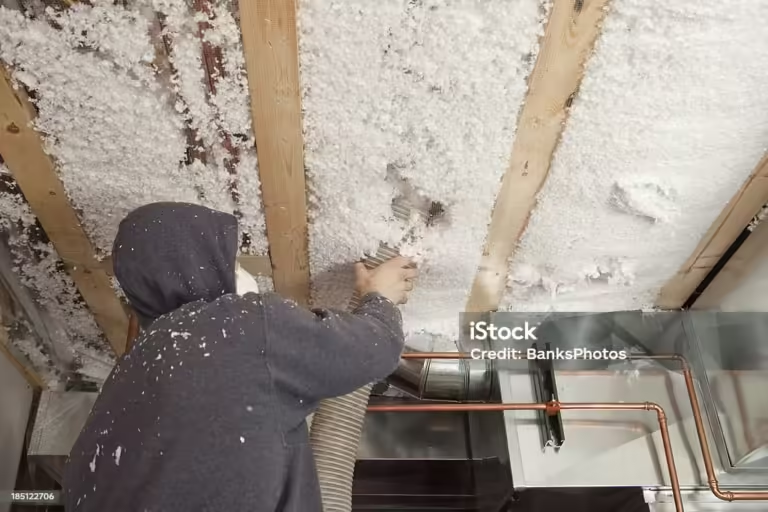In the realm of property ownership, concerns about neighbors claiming land through seemingly innocuous acts, such as mowing, have sparked discussions. This article delves into the legal nuances surrounding this issue while providing comprehensive insights into potential legal solutions for property owners about can a neighbor claim my land by mowing it?
Understanding Property Rights
Before exploring legal remedies, it’s imperative to grasp the foundational principles of property rights. Property ownership is a legally protected concept, granting exclusive rights to individuals over the use, possession, and disposal of their land. Any infringement on these rights warrants legal attention and intervention.

Can a neighbor claim my land by mowing it?
No Laws allows ownerships of land by only mowing it, So no one can claim your land by mowing it. While the act of mowing alone may not transfer ownership, property owners must remain vigilant and proactive in protecting their rights. Understanding property rights, leveraging legal solutions, and taking preventative measures can contribute to a harmonious neighborhood while safeguarding against potential disputes.
Mowing and Adverse Possession
Mowing a neighbor’s land can be viewed as a symbolic gesture, but it raises questions about adverse possession—a legal doctrine allowing individuals to claim ownership through continuous and open use over time. While mowing alone may not meet the criteria for adverse possession, it can become a factor when combined with other actions indicating an intent to possess.

Legal Solutions for Property Owners
1. Clearly Define Boundaries
The first line of defense against potential land disputes is to clearly demarcate property boundaries. Erect visible markers, install fences, or use other clear indicators to establish the limits of your land. This not only serves as a preventative measure but also acts as evidence in case of any legal dispute.
2. Open Communication
Maintaining open communication with neighbors is crucial. Discuss property boundaries with them, ensuring mutual understanding and agreement. A simple conversation can prevent misunderstandings and lay the groundwork for an amicable resolution should issues arise in the future.
3. Document Disputes
In the digital age, documentation is key. Keep detailed records of any concerns or disputes related to your property. This includes photographs, written communication, and any relevant legal notices. Having a comprehensive record can be invaluable if legal action becomes necessary.
4. Consult Legal Professionals
If disputes escalate, seeking legal advice becomes paramount. Experienced property attorneys can assess the situation, provide guidance on potential legal remedies, and represent your interests if legal action is required. Legal professionals can also mediate disputes, potentially avoiding the need for a protracted legal battle.
5. Assertive Action
In cases where a neighbor’s mowing activities or other actions suggest an encroachment on your land, taking assertive action is essential. This may involve sending a cease-and-desist letter, notifying the neighbor of the property boundaries, and clearly expressing your intent to protect your land.
Conclusion
While the act of mowing alone may not transfer ownership, property owners must remain vigilant and proactive in protecting their rights. Understanding property rights, leveraging legal solutions, and taking preventative measures can contribute to a harmonious neighborhood while safeguarding against potential disputes.
FAQs: Can a Neighbor Claim My Land by Mowing It
1. Q: Can my neighbor really claim my land by mowing it?
A: Mowing alone typically doesn’t transfer ownership. However, repeated and deliberate actions with an intent to possess may raise legal concerns.
2. Q: What are property rights, and how do they protect my land?
A: Property rights grant exclusive legal privileges over the use, possession, and disposal of land, protecting owners from unwarranted claims or encroachments.
3. Q: How does adverse possession come into play with mowing?
A: Adverse possession allows ownership claims through continuous and open use. While mowing alone may not trigger this, it can be a contributing factor when paired with other indicators.
4. Q: What proactive measures can I take to prevent land disputes?
A: Clearly demarcating boundaries, maintaining open communication with neighbors, and documenting disputes are key preventive measures.
5. Q: Is legal action necessary if I'm concerned about my neighbor's mowing activities?
A: Legal action may be necessary if disputes escalate. Seeking legal counsel, issuing a cease-and-desist letter, and clearly asserting your property boundaries are effective steps.




